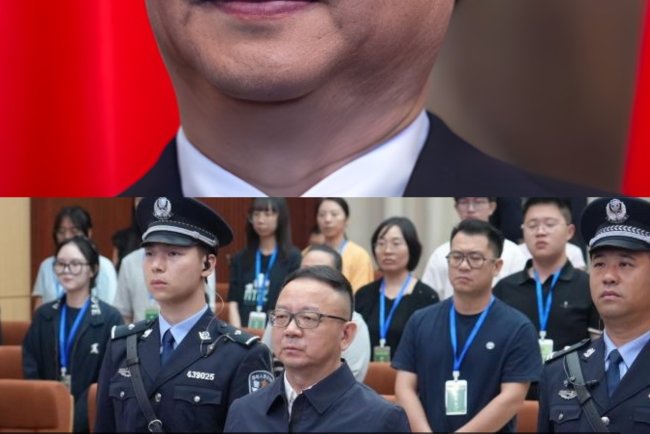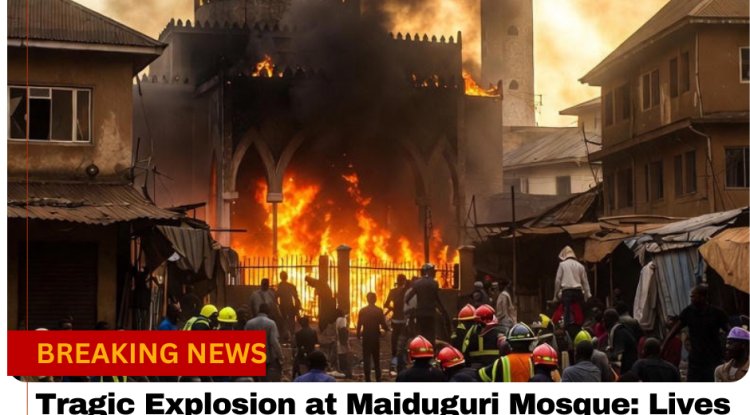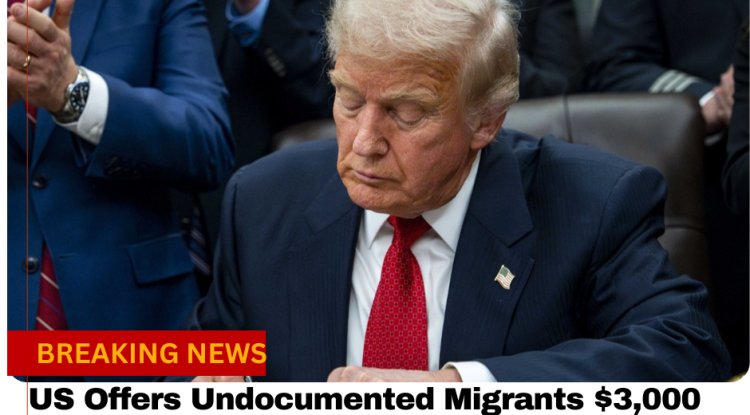Cameroon in Chaos: Protests Erupt as 92-Year-Old Paul Biya Claims Eighth Term Amid Rigging Claims
Protests have erupted across Cameroon after 92-year-old President Paul Biya, in power for over 42 years, was declared winner of the 2025 election with 53.7% amid widespread rigging allegations.
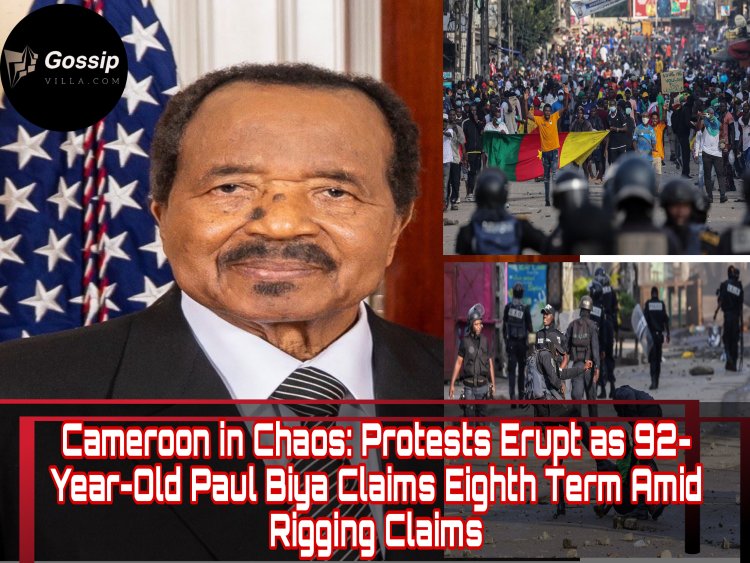
Cameroon in Chaos: Protests Erupt as 92-Year-Old Paul Biya Claims Eighth Term Amid Rigging Claims
On October 27, 2025, the country’s Constitutional Council declared 92-year-old President Paul Biya the winner of the presidential election, securing him an unprecedented eighth term with 53.66% of the vote. The central African nation of Cameroon entered yet another chapter of political unrest. President Paul Biya aged 92 has been in power since 1982 and was declared the winner of the presidential election, extending his rule into an unprecedented eighth term. The announcement triggered widespread protests, accusations of election rigging and vote manipulation, and renewed scrutiny of Cameroon’s electoral and political systems.
Background: A Long-Rule and Deep Frustration
Paul Biya ascended to the presidency in November 1982, succeeding Ahmadou Ahidjo in what was initially seen as a smooth transition. Born in 1933 in the southern village of Mvomeka’a, Biya rose through the ranks as a technocrat, serving as prime minister before assuming the top job. What began as a promise of reform quickly morphed into authoritarian consolidation. By the late 1980s, Biya had weathered coup attempts and internal party purges, entrenching the Cameroon People’s Democratic Union (RDPC) as the dominant political force.
Over the years, Biya’s tenure has been marked by constitutional tweaks that extended his eligibility. A 2008 referendum abolished term limits, paving the way for his sixth term in 2011 and seventh in 2018. Critics argue these changes were engineered to perpetuate his rule, often amid accusations of voter intimidation, media suppression, and electoral irregularities. Biya, often absent from the public eye for months at a time spending extended periods in Switzerland or Geneva has cultivated an image of enigmatic detachment, rarely engaging directly with citizens. At 92, he is the world’s oldest serving head of state, prompting questions about his health, capacity, and the shadowy succession plans within his inner circle.
The 2025 Election: A Predictable Yet Contested Affair
On 12 October 2025, Cameroon held its presidential election, with Biya facing a fragmented opposition. Key challengers included Issa Tchiroma Bakary, who garnered 35.2% according to official tallies, and other lesser-known figures. Voter turnout was reportedly low, exacerbated by opposition boycotts in some areas and security concerns amid the ongoing separatist conflict. The RDPC machine, bolstered by state resources, dominated the campaign, with Biya’s posters ubiquitous but his personal appearances scarce.
Allegations of rigging surfaced immediately: opposition leaders claimed ballot stuffing, voter suppression in opposition strongholds, and discrepancies in vote counts from rural areas where Biya’s support is traditionally strong. The Constitutional Council, perceived as loyal to the regime, validated the results swiftly, dismissing most challenges. International observers, including from the African Union, noted irregularities but stopped short of outright condemnation; the AU chairperson congratulated Biya on his victory, emphasizing regional stability. Western media and human rights groups, however, highlighted the lack of transparency, with reports of pre-election arrests of activists and journalists.
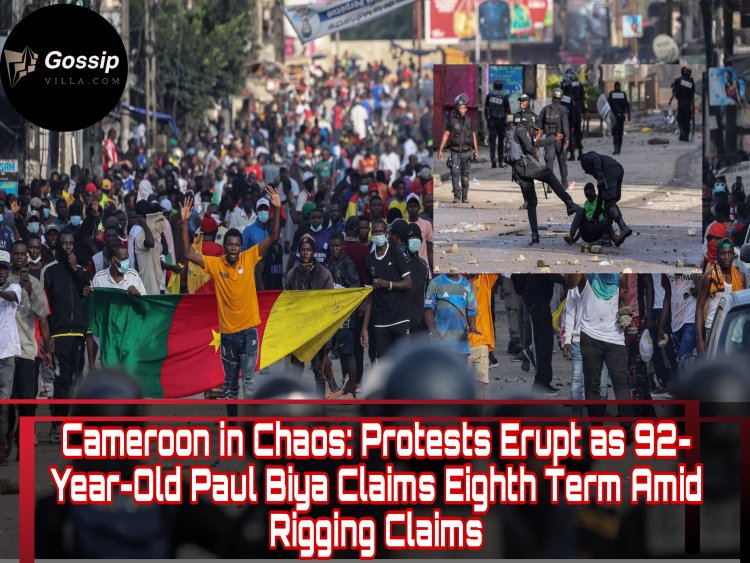
Protests Ignite: From Anger to Violence
The declaration of results triggered an outpouring of rage. In Douala, Cameroon’s economic hub, hundreds took to the streets for a second consecutive day, burning tires, erecting barricades, and chanting against Biya’s “eternal rule.” Similar scenes unfolded in Yaoundé and other localities, with protesters destroying property and clashing with heavily armed security forces. At least four deaths have been reported from these confrontations, including protesters shot by police.The U.S. Embassy issued a security alert warning of ongoing unrest and advising caution.
Opposition coalitions, including those led by Tchiroma Bakary, have rejected the outcome outright, vowing legal battles and sustained demonstrations. “This is not a victory; it’s a heist,” one leader proclaimed, echoing sentiments from civil society groups frustrated by the generational disconnect, a youthful population (over 60% under 25) chafing under a nonagenarian’s leadership. Social media has amplified calls for change, with hashtags like #BiyaMustGo trending despite government internet restrictions.
The protests tap into broader grievances: economic stagnation amid global commodity fluctuations, the unresolved Anglophone separatist war (which Biya’s government frames as terrorism), and fears of a power vacuum post-Biya. With no clear heir apparent rumors swirl around his son Franck or loyalists like Prime Minister Joseph Ngute, the unrest risks escalating into something more destabilizing.
International Echoes
Globally, reactions are muted but telling. France, Cameroon’s former colonizer with deep ties, offered tepid congratulations while urging calm. The U.S. and EU have called for investigations into irregularities, but economic interests in Cameroon’s resources temper criticism. African neighbors, wary of precedent-setting unrest, prioritize stability over reform.
For Cameroonians, the eighth term represents continuity for some Biya’s supporters credit him with averting chaos and stagnation for others. Protests may fizzle under repression, as in past cycles, or swell into a tipping point. As security forces tighten control, the question looms: Can a nation renew itself without upheaval, or will Biya’s longevity prove his undoing?
In the end, Cameroon’s saga reflects Africa’s complex dance with democracy where longevity breeds resentment, and change demands courage.
Sources
What's Your Reaction?









